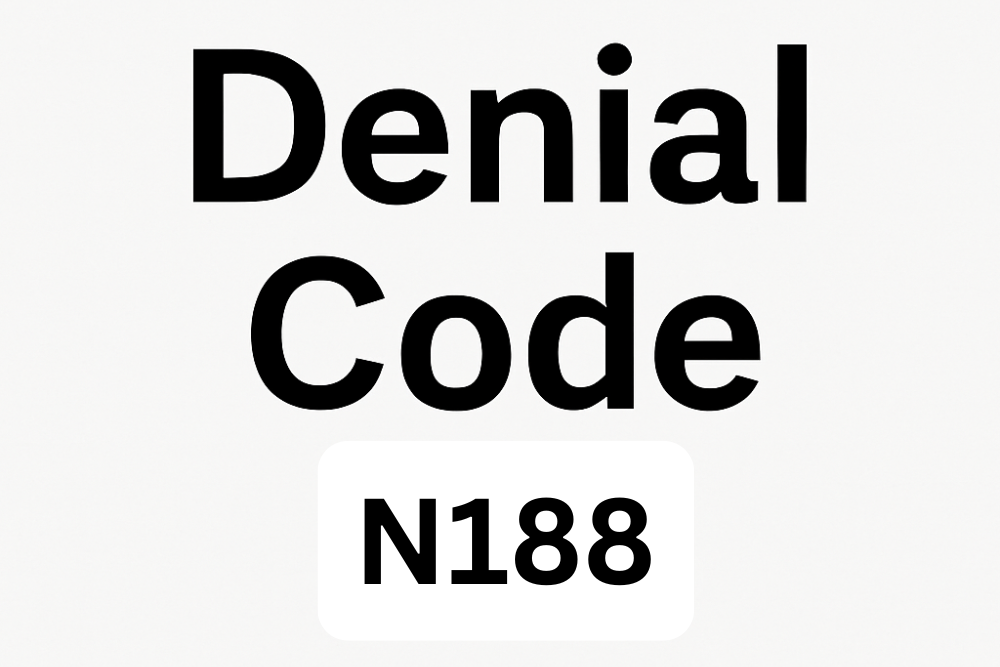Understanding N188 Denial Code: A Modern Guide for Healthcare Providers
In today’s healthcare billing environment, even one claim denial can interrupt your entire revenue stream. Among the many reasons payers reject claims, the N188 denial code stands out as both common and avoidable. However, with the right approach, you can avoid these denials, recover payments faster, and protect your bottom line. Let’s break it all down.
What is an N188 Denial Code?
The N188 denial code means the procedure code you billed doesn’t match the level of care the payer previously authorized. In other words, you may have delivered excellent care, but if the CPT code on the claim doesn’t align with the approved services, the payer won’t release payment. Therefore, N188 essentially signals a mismatch between authorization and billing, blocking timely reimbursement until corrected.
Common Causes of N188 Denials
Several factors can lead to an N188 denial:
- Incomplete or Inaccurate Information: Errors in claim details can hinder proper adjudication.
- Non-Covered Services: Sometimes, the billed service falls outside of what the patient’s plan covers.
- Procedure Code Out of Scope: The billed procedure may fall outside the scope of the payer’s program.
- Discrepancy Between Billed and Authorized Services: The procedure performed may not match the authorized service.
- Overcoding – The claim reflects a more complex or resource-intensive procedure than the payer authorized.
- Coverage Policy Mismatch – The procedure simply isn’t covered by the patient’s plan.
Best Practices to Prevent N188 Denials
Fortunately, healthcare providers can dramatically reduce N188 denials by following proven best practices:
- Verify Coverage Policies: Ensure that the procedures billed are covered under the patient’s insurance plan.
- Maintain Comprehensive Medical Records: Accurately document the level of care provided to support the billed procedure.
- Accurate Procedure Coding: Use correct procedure codes that reflect the level of care delivered.
- Align with Authorized Services: Confirm that billed codes match pre-authorized procedures.
- Adhere to Payer Guidelines: Follow specific coding guidelines and requirements set by payers.
- Identify and Correct Errors: Regularly review claims for potential errors and resubmit corrected claims promptly.
- Appeal When Necessary: If you believe the denial is unjustified, submit a detailed appeal backed by strong clinical documentation.
- Effective Communication: Maintain open lines of communication with payers, providers, and patients to address discrepancies.
- Leverage Advanced Claim Scrubbing Software: Use technology to catch coding or authorization mismatches before submission
Addressing N188 Denials
Even with the best preparation, denials may still happen. When they do:
- Review the Denial Notice: Understand the specific reason for the denial.
- Gather Supporting Documentation: Collect all relevant medical records and authorization details.
- Correct and Resubmit: Make necessary corrections to the claim and resubmit promptly.
- Initiate an Appeal: If applicable, file an appeal with comprehensive supporting documentation.
Need Assistance with Revenue Cycle Management?
Navigating the complexities of medical billing and denials can be challenging. If you’re struggling with N188 denials or other revenue cycle issues, consider partnering with Claims Med. Our team of experts offers tailored solutions to optimize your billing processes and enhance your financial health.
Contact Claims Med today to learn more about how we can support your practice.

